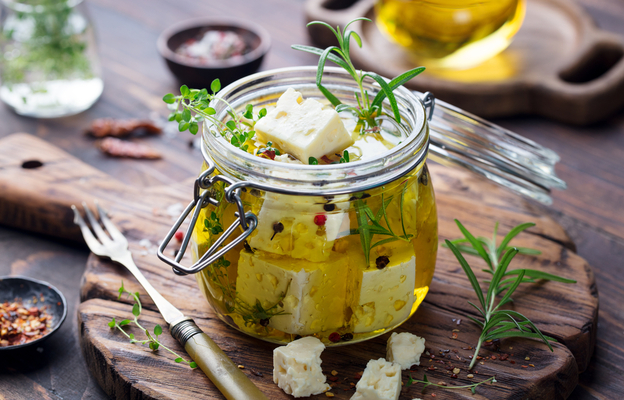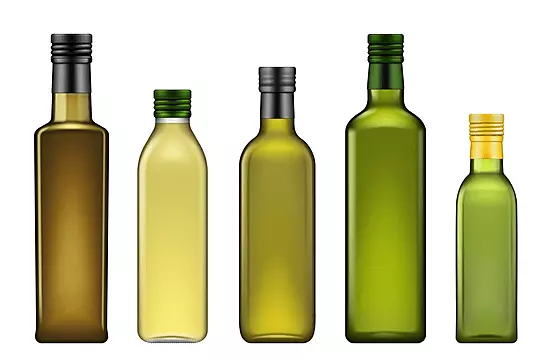
Extra Virgin Olive Oil is one of the most reliable oils
Noting that, according to scientific studies, consuming 5 grams of trans fat per day increases the risk of cardiovascular diseases by 25 percent. Dr. Osman Erk said, “Eating a slice of pizza, a medium size french fries and a slice of cake a day causes 18 grams of trans fat intake.”
Many ready-made foods that we consume during the day may contain trans fat. Therefore, the more we prefer such foods, the more trans fats our body is loaded with. “This situation paves the way for many health problems, especially cardiovascular diseases over time,” said Prof. Dr. Osman Erk explained what should be known about trans fats as follows:

The raw materials of trans fats are vegetable oils such as sunflower, corn, soybean, cotton and palm oil.
Trans fats are formed as a result of the addition of hydrogen to liquid vegetable oils and the heating process. This chemical procedure is called “partial hydrogenation.” Trans fats are synthetic. The hydrogenation method is an unnatural chemical process using very high pressure and heat (260°C), accompanied by nickel catalysts. Trans fats are a slow-acting type of chronic poison.

Do not have a positive effect on our health.
These artificial, synthetic and solidified oils, which are not found in nature, do not have a positive effect on our health. Due to their synthetic structure, they cannot be burned by the mitochondria, which are the power plants of the cells, and accumulate in the body. It is known that the daily trans fat intake of children aged 12-18 living in the USA 50 years ago was more than 30 grams. 80-90 percent of this amount comes from trans fatty acids obtained by partial hydrogenation method, and 10-20 percent originates from meat and dairy products. Trans fats, which are consumed abundantly in childhood, are shown to be responsible for this situation in people who have had a heart attack and stroke at an early age. Natural trans fatty acids from meat and dairy products are not harmful to health, unlike synthetic ones.

Cholesterol
Trans fats raise bad (LDL) cholesterol and lower good (HDL) cholesterol.
It disrupts omega-3 metabolism and balance.
A small increase in trans fatty acids in the diet significantly increases the risk of cardiovascular disease.
According to scientific studies, trans fat consumption can increase the risk of diabetes, Alzheimer’s, Parkinson’s and infertility, as well as breast, prostate and colon cancer.

Mostly found in frying oils.
Processed oils used in fastfood-type foods, some restaurants, hotels and food companies are the most intense sources of trans fat. These continuously used fats contain plenty of trans fats and many other carcinogenic compounds. Frying oils can contain many carcinogenic substances, just like cigarettes. Among these carcinogenic substances, the most striking is HNE (Trans-4 Hydroxy-2 Nonenal). This carcinogen is formed as a result of repeated use of corn, soy, canola oils, especially containing omega 6.
The amount of HNE formation with olive oil is minimal. In this respect, olive oil is one of the most reliable oils.

According to scientific studies, consuming 5 grams of trans fat per day increases the risk of cardiovascular diseases by 25 percent. In fact, it is not correct to consume less than 5 grams. Even if a product contains less than 5 grams of trans fat, we are exposed to dangerous amounts of trans fat when we consume less than 5 grams of excess food. For example, a slice of pizza contains 5 grams, a medium-sized package of french fries contains 8 grams, and a slice of instant cake contains 5 grams of trans fat. When you consume these in a day, your body is loaded with 18 grams of trans fat. This is risky for your health.

Trans fats are found in these foods.
Trans fats are found in many bakery foods such as bread, cake, pastry, bagel, pastry, cookie, pastry, muffin, pastry, baklava, margarines, commercial frying oils, some salad dressings, some coffee creams, bouillon tablets, some confectionery and some frozen foods. is abundant. Due to its ability to be heated and used repeatedly, it is found in ready-made potato, chicken and vegetable fries. It is used to increase the shelf life and flavor of foods such as biscuits, wafers, chocolate, crackers, chips and cookies. Of course, these oils, which extend the shelf life of foods, shorten the life of those who consume them. In order not to consume trans fat, you should stay away from ready-made foods, especially fast foods such as pizza, hamburgers and french fries that contain trans fat.

Secret names of trans fats.
FDA; As of January 1, 2006, all ready-to-eat foods labels require trans fat content in the bottom row of saturated fats. In many countries, labeling requirement regarding trans fat in foods has been introduced. Labels indicate total, saturated fat, as well as trans fats. The amount of trans fat, which does not exceed 5 grams per serving, is shown as 0 on the labels as required by law. However, trans fat content is not written on most of the food labels in our country, either in very small fonts or under different names. Therefore, food labels should be carefully examined. Phrases such as “hydrogenated oil”, “hydrogenated vegetable oil”, “hydrogenated vegetable oil” are used expertly to hide trans fats in the product. Just like cigarettes and alcohol, products containing trans fat should be labeled “harmful to health”. In restaurants, grilled and boiled dishes should be preferred, not fried ones.

